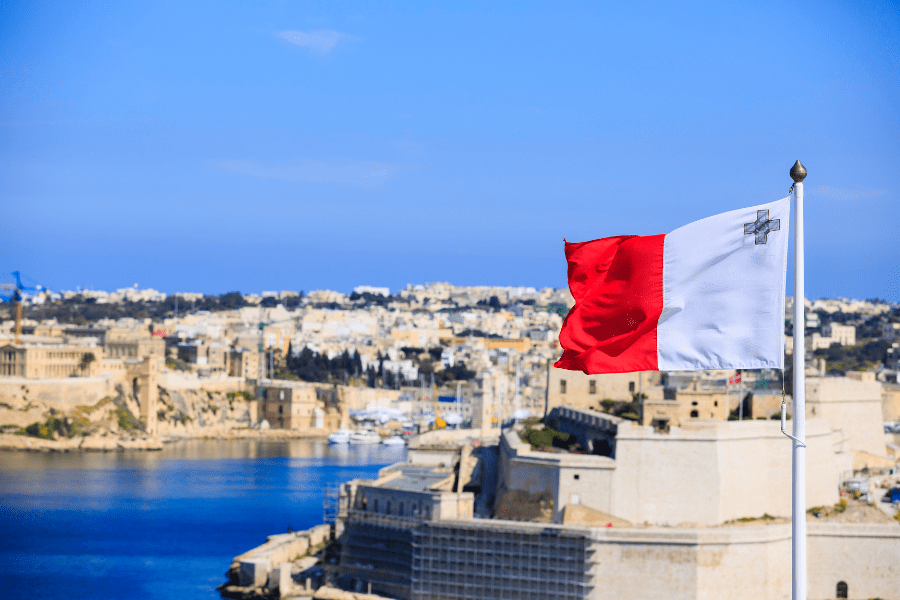Tax Benefits of Setting Up a Company in Malta
October 31, 2024
You don’t have to look too hard to see the tax benefits of setting up a company in Malta.
Malta offers significant tax benefits to investors, business owners and other foreigners seeking to grow their wealth. That is well-known by now. But just what are the benefits of setting up a company in Malta, at least when it comes to taxes?
This is a low-taxation jurisdiction that doesn’t hinder or interfere with your business or other ventures. Key tax benefits include:
- 5% effective corporate tax rate after refunds, the lowest in the EU
- Tax advantages for residents without domicile
- EU-compatible tax laws with a business-friendly administration
- EU membership with freedom of movement, Schengen access and the Euro
- English as an official language, facilitating international business
- A well-educated, multilingual workforce in a diversified economy
- A sunny climate, excellent flight connections and vibrant tourism
At Nomad Capitalist, we advocate moving your wealth or business to a country that values your money. And, for some, that means setting up a company in Malta.
We’ve helped 1,500+ clients find a place where they’re treated best and save more of their profits for themselves and their businesses. Become a client and let us help you navigate the complexities of moving your business overseas.
In the meantime, here’s everything you need to know about how to form a company in Malta to enjoy the benefits of Malta’s corporate tax rate and incentives.

Malta Country Overview
Malta is an island group in the central Mediterranean Sea. The government is a unitary multiparty republic with a judicial, legislative and executive branch. The legislative branch consists of an elected parliament, Cabinet of Ministers make up the judicial branch, and the Prime Minister is the executive branch.
Malta – Climate
Malta’s climate is dominated by Mediterranean-type weather, meaning they have mild, warm weather patterns. Brief, mild winters are followed by long, hot summers leading to warm but wet falls. There’s an annual average temperature of 19° Celsius (66° Fahrenheit).
Malta – Culture
Malta is a hybrid of North African Arabic and Sicilian Italian cultures and people. English and Maltese are the official languages. The people are known for their warm and welcoming nature, prioritising hospitality.
Malta – Economy
The Maltese economy has developed and diversified since reliance on the British empire in the 1950s. Capital controls were fully lifted when Malta joined the European Union in 2004.
The movie industry contributed €85 million to the economy in Malta in 2022 as the island has become a popular filming location.
The Central Bank of Malta forecasts that the country’s gross domestic product (GDP) is expected to grow by 4.4% in 2024.

Corporate Tax Benefits for Companies in Malta
The corporate tax rate is 35% and is charged on capital gains and worldwide income. However, in the future distribution of dividends, Maltese shareholders can set off this taxation against income tax.
This means that non-resident shareholders are entitled to a refund of most of this tax, which allows a significant reduction in the effective tax rate. The tax paid can be reduced, so you end up paying between 0 and 10%.
To look at it in another way, Malta operates a full imputation system, meaning that dividends paid by companies in Malta do not trigger any further tax since they include a tax credit identical to the tax paid by the company upon the distribution of profits.
So, shareholders are eligible for a refund equivalent to two-thirds, five sevenths, six-sevenths or a 100% refund of the income tax paid by the Maltese company when dividends are distributed. As you can see, this participation exemption can be substantial.
However, this potential full refund of the taxation paid on the dividends and gains received from participating holdings is possible as long as it does not derive more than 50% of its income from passive interest or royalties.
Malta has agreed to over 70 Double Tax Treaties and signed five Tax Information Exchange Agreements with different countries worldwide.
This prevents double taxation. A double tax treaty protects you from getting taxed more than once on the same income.
Become a Nomad Capitalist client , and we will show you how to win the corporate tax system. A tax refund could be yours, meaning less tax paid overall.
Malta Corporate Tax Requirements
To be taxed on chargeable income, companies must be registered or resident in Malta.
The tax base on which corporate taxation is levied on companies in Malta comprises the profit and losses made by a company in a fiscal year with expenditure and income adjustments. Double tax agreements shelter foreign income.
Foreign companies incorporated outside Malta can be subject to Maltese taxes if carrying out business activities in Malta and paying tax on income derived from Malta.
This is a universal rule applicable in all jurisdictions. Foreign companies that are managed and controlled from Malta are considered non-domiciled tax residents.

Malta Corporate Tax Conclusion
To create taxable income, companies must be registered in Malta or be residents there. Companies pay a 35% corporate income tax on capital gains and income generated overseas.
Yet, in the future distribution of dividends, shareholders are permitted to set off this taxation against income tax.
This results in non-resident shareholders benefiting from a total tax refund system, which can reduce the taxation rate to between 0 and 10%. However, the dividend income must satisfy the participating holding regime.
Double tax relief is available thanks to a wide-ranging double tax treaty network between Malta and different countries. This ensures Maltese companies are free of double taxation on the same income.
Keep in mind, however, that there are additional nuances as well as cases whereby a company is considered a non-domiciled tax resident and pays a flat 15% tax on remitted income.
This is something that needs to be explored on a case by case basis, so if you’re unsure, get in touch.
As a Nomad Capitalist client , we can advise you on all things Malta-related, from taxation to residency and the Maltese Exceptional Investor Naturalisation (MEIN) route to citizenship.
Tax Benefits of Setting up a Company in Malta: FAQs
By Maltese income taxation legislation, companies resident in Malta are taxed at the standard rate of 35% on their worldwide income and capital gains. A refund is available to non-resident shareholders, which can reduce this taxation liability to between 0 and 10%.
Learning how to open a company in Malta involves several steps, including:
● Choosing company type
● Preparing and filing documentation
● Register a company name
● Obtaining a business license
● Setting up framework
When setting up a company in Malta, a minimum share capital of €1,165 is required for a private limited company (Ltd), with at least 20% of this amount to be paid upon incorporation. For public limited companies (PLC), the minimum share capital is higher at €46,587.
Setting up a company in Malta typically takes two to five days once all the necessary documentation is prepared and submitted correctly to the Malta Business Registry (MBR). If everything is in order and there are no delays, the company registration process could be completed within a week.
Foreign investors set up a Maltese company to benefit from the effective corporate taxation on foreign income. The foreign tax rate in Malta is 35%, which you can drastically reduce by distributing all the profits to Maltese holding companies.
We can assist you with much more than Malta’s tax rates. Our holistic plans cover everything, from foreign source income to withholding taxes. Let us lend you a helping hand with the likes of allowable expenses, passive income, and tax exemption.
To register a company in Malta, you will need to choose a unique name, prepare necessary documents like the memorandum and articles of association and submit them to the Malta Business Registry.
While the exact steps may vary depending on the company you’re opening in Malta, it’s important to ensure compliance with local regulations, appoint a company secretary and meet any capital requirements for a smooth registration process.
Should I Form a Company in Malta?
For income tax purposes opting to become a tax resident or taxable business in Malta can save you a lot of money every year. It’s just one of the reasons why the country has become such a popular jurisdiction for company formation, particularly with financial services and fintech companies.
Nomad Capitalist specializes in helping people go where they’re treated best. We pride ourselves in helping our clients save more money in taxes while going to a country that encourages growth.
Become a client and let us help you achieve these goals.


Does Puerto Rico Pay Taxes to the US?
It’s a common question and one that often fuels confusion, debate, and a fair share of misinformation – Do residents of Puerto Rico actually pay US federal taxes? When most people think of US tax obligations, they naturally assume they apply uniformly across all US citizens. But when it comes to Puerto Rico, things are […]
Read more

How to Eliminate US Expat Taxes (by Renouncing)
A common myth persists among many Americans that they can’t benefit from the same tax-saving opportunities as other expats when moving overseas. That misconception is rooted in the United States’ insistence on implementing citizenship-based taxation, requiring their citizens to report and pay tax on their worldwide income – regardless of where they live. As a […]
Read more

How to Pay Zero Tax in Latin America
Latin America has a reputation among many investors as a ‘tax hell’, and its headline tax rates seem to bear out this theory. Colombia taxes top earners at 39%, Ecuador at 37%, and Chile climbs to 35.5%. Those aren’t tax rates to sniff at – they’d make a freedom-sized hole in any annual tax return. […]
Read more




